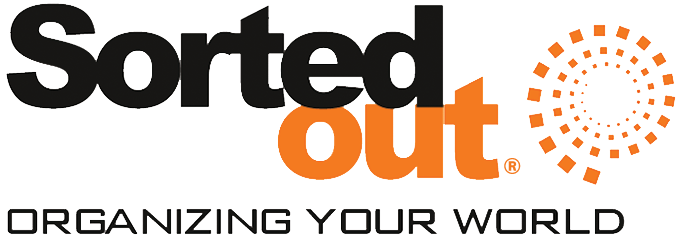Cost of Overcommitment in the Workplace
Are you a “Yes Man/Woman”? Do you consistently find yourself having a hard time saying “no” to your boss and/or coworkers? The fact of the matter is that overcommitting yourself at work can lead to more negatives than positives. Read on to see if you not only are guilty of overcommitting, but also what you can do to break the habits that lead to burnout at work.
What is overcommitment in the workplace?
Overcommitment is when employees take on more tasks or responsibilities than they can handle. Often, this is due to the pressure one feels to perform or do a good job. People that are natural people pleasers are going to inherently have a difficult time avoiding overcommitment because they want to please their supervisors/bosses. You also may overcommit if your workload is already too high and/or if you struggle with perfectionism in the workplace.
What is the cost of committing to too many things?
Why exactly is being a people pleaser or perfectionist at work actually a bad thing? It’s likely costing you more than you realize! When you overcommit you may not be able to get all your tasks completed. But, in trying to complete everything you’ll become fatigued, stressed, and anxious which all lead to burnout. This can build up and lead to mental health issues, or loss of satisfaction with your job altogether.
Unfortunately, this could lead to financial costs as well. There are hidden costs of overcommitment such as higher healthcare costs due to stress-related illnesses or issues. Loss of job satisfaction and burnout also means companies must continually hire and train new employees due to turnover. You may even create a loss in sales/company profit due to lack of productivity or declining work quality. By taking on too many tasks, roles, or responsibilities you may not be able to give your best effort and time to all of them.
Can overcommitment affect your team or coworkers?
The short answer? Yes. Individual overcommitment can (and likely will) affect your team and coworkers. If you are constantly overcommitting at work, it can cause tension within the team. If a colleague is taking on too much, others may feel resentful (for a myriad of reasons) and it could lead to conflict. It can also lead to distrust and a decrease of their desire to collaborate or work with you. One individual overcommitting themselves is harmful to the overall team performance because it threatens to unravel the initial benefits of working within a team and sharing responsibilities.
What are important signs to watch out for when it comes to overcommitment?
Once you understand what overcommitment is and what it may cost you, it’s important you’re able to recognize the signs of it. A clear sign would be if a complaint comes from within the company or team. Often, others may pick up on a change in your performance before you do! You should also watch out for:
- Increased absenteeism
- Declining performance
- Lack of enthusiasm or overall dissatisfaction on the job
When is the right time to say “NO”?
So, you may realize at this point that you’re overcommitting yourself. The question then becomes, “but how do I fix it?” We understand that saying “no” can be difficult when you’re striving to be the best in your role, but there is a time and a place to politely refuse. Appropriate times you should feel comfortable to say “no”:
- When you already have a full schedule
- If a task doesn’t align with your professional goals/what you’re already doing
- If you don’t have enough resources (time, tools, or support) needed to succeed
- If the request is urgent but not important to the overall goal for the project/task
- If it is going to affect your personal well-being (mental health/stress levels/etc)
It is always best to set boundaries. If you feel like you are constantly being asked to take on more and more work, it IS okay to say “no”. If you ultimately feel like saying “yes” will risk the work quality and/or that your involvement will compromise the success of the project or task, then it is best not to involve yourself with the commitment.
What can be done to help lessen overcommitment from happening? How do I identify possible overcommitment issues early?
If you’re hoping to get ahead of overcommitment, there are things you can do! Leadership plays a crucial role in modeling healthy work habits and should regularly assess team dynamics and workloads to make sure its balanced among everyone. Check in with employees/colleagues regularly to see how they are feeling. Be consistent in gathering feedback on any tasks or responsibilities that others believe they could use help with. Do your best to delegate tasks and workloads and set clear expectations that encourage everyone in the office/on the job to have open communication.
Promote a healthy work/life balance and provide time management tips and resources. You may even offer training on time management to empower everyone on the team to prioritize effectively. Perhaps most importantly, ensure those in a leadership role provide a supportive environment. You want all employees to feel safe and comfortable speaking up if they feel they are taking on more than they can handle.
What can employees do, personally, to avoid overcommitment at work?
If leadership is doing their part to ensure a safe and supportive environment, employees need to do theirs by being honest. Speak up about what you can/cannot take on! Set firm boundaries for yourself and learn to say “no” when necessary. Set realistic deadlines, practice better time management , prioritize tasks effectively, and use time blocking to stay on top of your responsibilities.
You should also assess your workload regularly and keep the lines of communication open with supervisors as well as teammates. Do what you say you are going to do and if you feel like you will not be able to? Speak up! Your tasks can be delegated to someone else with a lighter workload/greater availability so the project itself isn’t jeopardized. It’s always better to utilize the benefits of working with a team rather than to suffer in silence and threaten the success of the project.
If you saw any of yourself in these warning signs or if the concept of saying “no” is wildly appealing but you’re still not sure you’ll be able to take your people-pleasing tendencies head on, please let us help! The costs of continuing the bad habits and staying silent to your suffering aren’t worth the risk you’re taking with your mental health or job. Our inbox at info@sortedout.com is always open and our Time Management and Productivity specialists would be happy to equip you with the necessary tools to make overcommitment a thing of your past.
Looking forward to hearing from you,
Tonia
Ready to get Organized?
Book a Call with Julie!
Request a Consultation
There are so many ways that organization can help take back a space that is overwhelming and bring it to functional!
We are excited to help start your journey to an organized and productive space.






